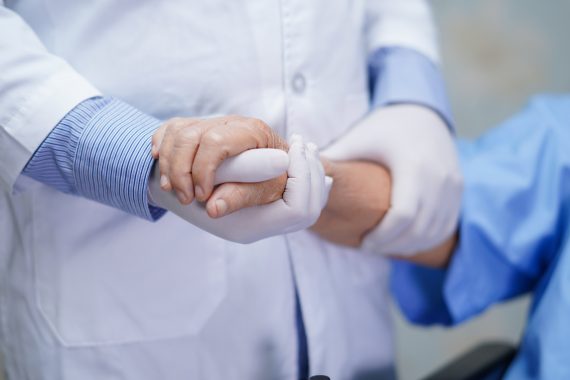Those who have died with Covid-19 have lost 10 years of life on average, according to analysis by the Health Foundation .
With 146,000 people having died during the UK’s first year of the pandemic, this equates to around 1.5 million life years lost overall.
The analysis, which saw the charity compare death records with life tables that calculate life expectancy for each age group in the UK , found that:
- People in the 20% most deprived areas of England were twice as likely to die from Covid. People in deprived areas also died at younger ages on average, meaning they lost more years of life.
- More years of men’s lives were lost than women’s in the pandemic – 825,000 years for men and 670,000 for women. Each man lost on average 10.4 years, while women lost 10 years on average.
- Men were up to twice as likely to die from Covid as women of the same age as them.
Calling for a ‘full public enquiry’, Health Foundation chief executive Dr Jennifer Dixon said that ‘while there have been successes in the UK’s approach, it has also fallen short in key areas’.
She added: ‘The scale of loss the UK has experienced in the pandemic is devastating.
‘Older people have been impacted most and those who have died and their families could have enjoyed many more years of life together.’
The news comes as over 28 million people in the UK have now had a Covid vaccine, just over half of the adult population.
The recently introduced QCovid algorithm – which includes data on age, gender, ethnicity and deprivation alongside underlying health conditions helped identify over a quarter of a million people under 40 to prioritise for vaccination, a Pulse analysis has found.











